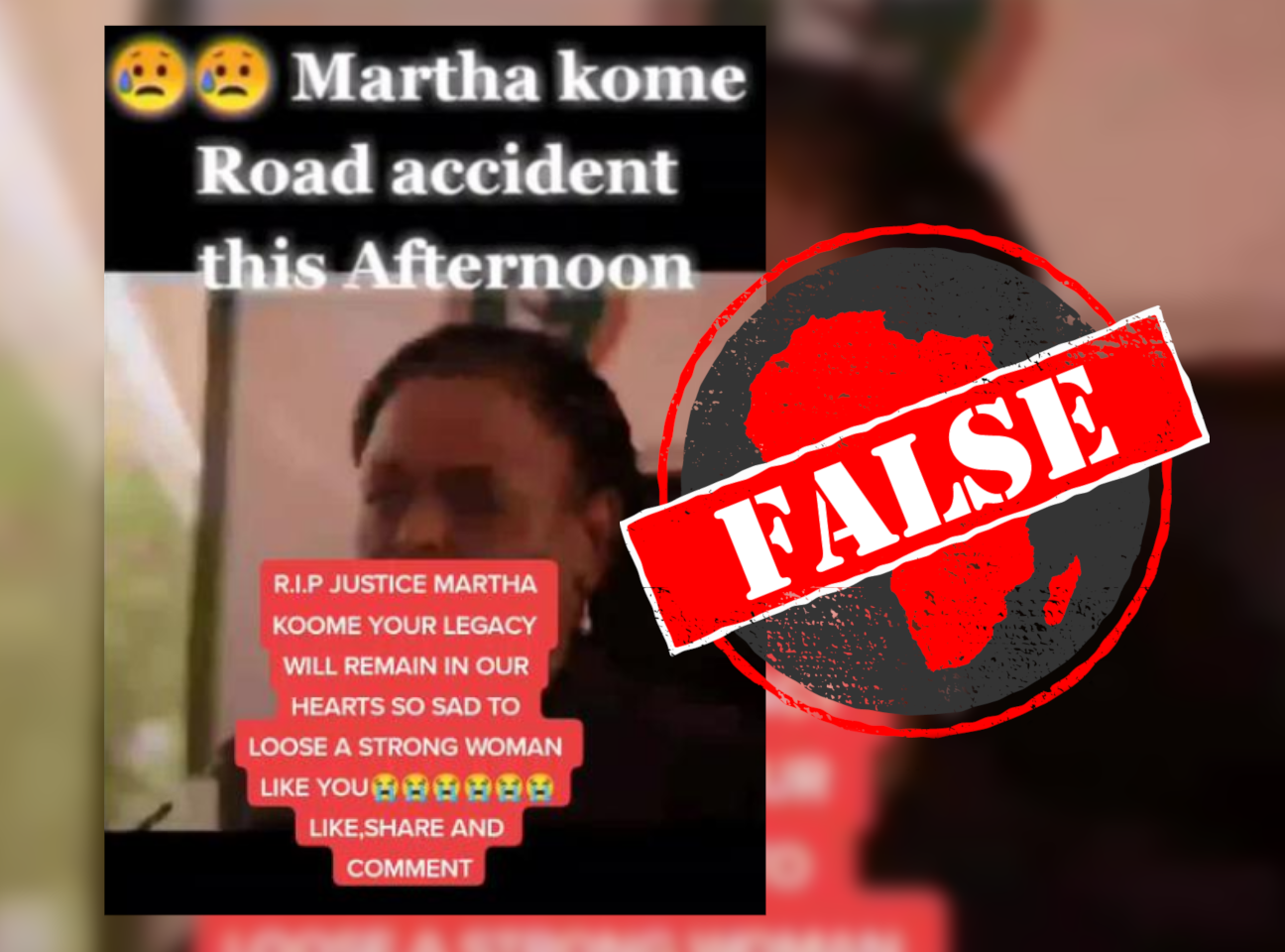IN SHORT: False information about the country’s top judge continues to be shared on social media, despite clear evidence to the contrary.
On 26 January 2023 a TikTok video claiming that Kenya’s chief justice Martha Koome had died in a road crash that day went viral.
The video includes photos of the chief justice and the six other supreme court judges. A solemn song plays in the background.
The caption reads, in capital letters: “R.I.P Justice Martha Koome. Your legacy will remain in our hearts. So sad to lose a strong woman like you.”
It urges viewers to like, share, and comment.
More videos with a similar claim, that Koome is alive but in a bad condition in hospital, can be found here and here on TikTok. This claim also appears on Facebook here, here, and here.
Together, the claims have been shared more than 5,000 times and attracted thousands of comments.
But is there any truth to them?

Supreme court’s election judgement made Koome a target
Koome became chief justice on 21 May 2021. This also made her the president of the supreme court.
Her position has made her the target of false information on social media. The attacks increased sharply after the court upheld the results of the disputed August 2022 presidential election.
This prompted the judiciary to warn against sponsored social media attacks. Koome also disabled the ability of users to comment on her posts.
We searched for media reports of an accident involving the chief justice and came up empty.
And on 19 January the judiciary took to its verified Twitter account to deny the claims. Despite this, the posts remain up on TikTok and continue to circulate on Facebook.
Koome seems to have accepted that it comes with the job. She recently joked about the accident claims while at a launch event. She has decided to distance herself from social media and focus on her work as a judge, she said.
The claims that Kenya’s chief justice was involved in an accident are false.
Republish our content for free
For publishers: what to do if your post is rated false
A fact-checker has rated your Facebook or Instagram post as “false”, “altered”, “partly false” or “missing context”. This could have serious consequences. What do you do?
Click on our guide for the steps you should follow.
Publishers guideAfrica Check teams up with Facebook
Africa Check is a partner in Meta's third-party fact-checking programme to help stop the spread of false information on social media.
The content we rate as “false” will be downgraded on Facebook and Instagram. This means fewer people will see it.
You can also help identify false information on Facebook. This guide explains how.


Add new comment